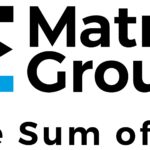The international call for transparency in an inescapably biased system
By Bobby Amm, Chief Executive of the Commercial Producers Association

At the end of 2016, after many allegations of advertising agency bid-rigging, the US Department of Justice began investigating the claims. In these cases, multiple advertising agencies with in-house production companies were accused of configuring bids to their own tenders using the content obtained from the bids of specialised production houses.
But bid-rigging isn’t just an American concern; it’s an international issue that impacts on the South African production industry too. Without fair and transparent systems in place, the entire industry’s ability to hire and grow new talent, while offering competitive services, is impacted.
Fundamentally inescapable bias
The Institute of Practitioners in Advertising (IPA) has asked agencies not to use the intellectual property shared with them by production companies to improve their own bids. But SA’s Commercial Producers Association (CPA) and other similar international bodies don’t believe this is possible in practice – even with the most conscientious intentions.
The content presented in a bid holds hard-earned creative ideas and planning; material that can’t be unknown after reading it. Expenses are also revealed, so an agency would need to consciously charge more than opponents for a project to be awarded to them; an unlikely deed in such a competitive setting.
While many agencies assert that the people who receive bids aren’t connected to the people who create bids, the risk for bias is too compelling. A system is needed to make sure an impartial and competitive bidding process is executed; one that protects everyone involved.
Universal Rules of Engagement
To protect the honour of the industry, and tackle the call for transparency, the members of the CPA have agreed that, from February 2017, they’d refuse to pitch against in-house production companies. This movement has also been assumed in North America and Europe.
The CPA has implemented the commercial industry’s Universal Rules of Engagement:
“To keep focused on [their] core areas [namely, improving the creative product, finding efficient solutions and keeping the talent pool fresh and strong], business issues should be as standardised and predictable as possible… The topics discussed [in these principles of contracting a production company to produce a commercial] ensure that advertisers and agencies receive the highest quality product possible, and that production companies are treated fairly in the execution of each project.”
The Rules also state that:
“There should be a maximum of three production companies invited to bid for a commercial project. These entities should be advised of others they are bidding against, as it helps shape the expectation of the desired outcome. In situations where there are more than three bidding companies on the same project, all participants should be notified in advance (or as this situation arises) so that companies can better assess whether they would like to participate in the bidding pool.”
The impact on advertising agencies
While these adjustments are potentially disruptive to the way agencies have worked until now, we believe that they promote impartiality and, ultimately, a prosperous production industry for everyone.
Agencies can therefore expect CPA members to:
- Ask for an upfront statement of whetheran in-house production company will be participating in the pitch, or if there is a chance of them doing so during the process;
- Include a declaration in their pitches that they are submitting their bid with the understanding that no party in the bidding pool, directly or indirectly, is a parent or subsidiary of, connected to, or is any holding company of the agency requesting the bids; and
- Ask for a list of the houses they’re pitching against, so they can organise resources and determine if they’re effectively positioned to respond to the brief.
Ultimately, agencies will have two choices when it comes to commercial work: to produce their own work, or to outsource. Not both. Seem reasonable?
- MRF Unveils Latest MAPS® Data - 20th February 2025
- The BRC announces changes to the board and updates for 2025 - 17th December 2024
- Top 50 DSTV TV programmes – October 2024 - 12th November 2024





